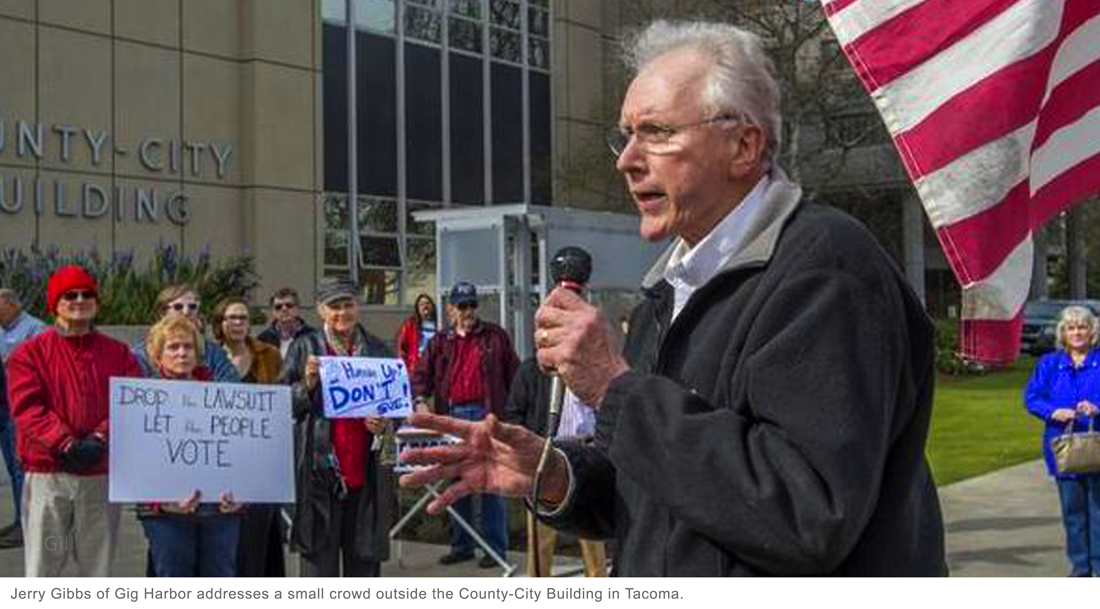“Help me get my B.S. in the voters pamphlet,” read the subject-line of Tim Eyman’s email.
Eyman is a practitioner of the art of the voter initiative, foremost in his state, Washington, and one of the most effective nationwide.*
This particular call to action concerns the voter pamphlet statements about a tax increase placed on Washington State’s November ballot by the mayor and city council in Tim’s hometown of Mukilteo.
“In the pro statement,” Eyman explained, “they wrote that the need for the tax increase was ‘indisputable.’” Which his rebuttal countered with: “Politicians always say the need for higher taxes is ‘indisputable.’ We call B.S. on that.”
It is rather to the point.
But soon he received word from the city that, “The Auditor feels the language is inappropriate and would like you to choose different wording.” Rather than “We call B.S. on that,” it was suggested that he might use: “We call foul.”
Eyman objected. He pointed out that B.S. is used ubiquitously; he sent the city examples.
“I called the ACLU,” his email noted, and “they thought it was B.S. for the government to say you can’t say B.S.”
Eyman’s own attorney, Stephen Pidgeon, sent the city a detailed letter pointing out that this is “exactly the speech protected under the First Amendment.”**
The City of Mukilteo has yet to announce a final decision. Tim Eyman invites all of us to send an email to encourage the city to Let Eyman Keep his B.S. in the Voters Pamphlet.
This is Common Sense. I’m Paul Jacob.
* He was once even dubbed “America’s No. 1 freedom fighter” — by me.
** Pidgeon also offered, “While the pious may construe the inference of these two alphabetic avatars as meaning something crude, my client may very well have been referencing an ancient Latin phrase ‘Bubulum Stercus’ which no average voter would ever find inappropriate.”





 But in 2013, the state supreme court ruled voters could not so limit their state legislature, short of a constitutional amendment. And — you guessed it — the Evergreen State lacks a statewide initiative process for voters to amend the constitution … without the permission of their legislators.
But in 2013, the state supreme court ruled voters could not so limit their state legislature, short of a constitutional amendment. And — you guessed it — the Evergreen State lacks a statewide initiative process for voters to amend the constitution … without the permission of their legislators.



